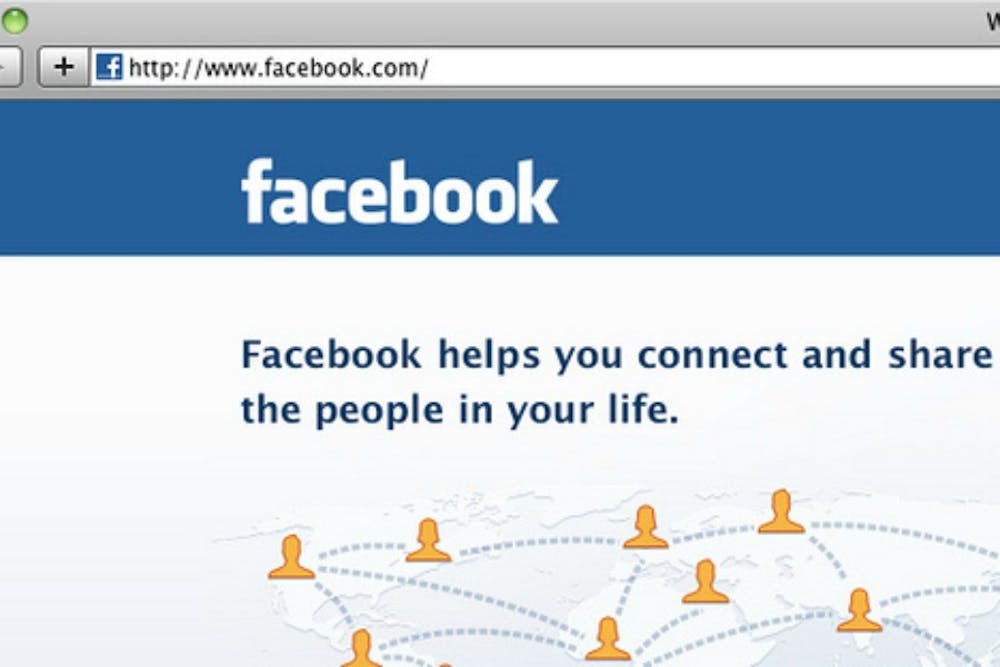New research from Miami University has shown that a change in the Facebook algorithm may have increased the visibility of posts from local Republican parties. Professors from Miami and Wright State University (WSU) found that, despite posting more, Democratic parties received significantly less interaction on their posts.
Lee Hannah, an associate professor of political science at WSU, oversees the internship program for political science students. He had many students interested in working with campaigns and elections, but Hannah had trouble receiving responses from local parties.
This growing frustration with the lack of responsiveness sparked his interest in the expectations of local political parties.
“I initially came in with this very small question of, ‘What if we did an audit study of local parties and just … measured their level of responsiveness,’” Hannah said. “But fortunately, when meeting with Kevin and Ann, we talked more broadly about … observing the parties on multiple levels.”
Hannah, along with Kevin Reuning and Anne Whitesell, assistant professors of political science at Miami, and four student interns, two from each school, collected social media handles and websites for as many county and county-equivalent parties as they could find in the U.S.
After analyzing data from about 6,000 local parties and their online presence during the 2020 election year, they presented their findings at a conference and received feedback to investigate further back.
The researchers used CrowdTangle to log data from January 2016 to 2018. CrowdTangle is a software that gathers information from social media accounts such as how often the account posts, how many likes each post gets and how many reactions the post received.
“I downloaded all the social media activity off of CrowdTangle … and suddenly there was this weird thing going on in 2018 with Republicans,” Reuning said.
They found no differences in social media interactions from 2016 to 2018, but toward the end of 2018, local Republican parties’ social media accounts received twice as many shares as their Democratic counterparts, even though Democratic parties posted more often. This increase occurred after a series of years where the number of interactions on both accounts was similar.
The researchers looked at data from Twitter during the same time frame and didn’t see a similar spike. The evidence from their Twitter analysis proved that the increase in interaction on Republican posts was specific to Facebook.
“In the back of my mind, I was thinking there has been this leak about Facebook information and how there was this change in the algorithm,” Reuning said.
The researchers can’t definitively conclude that the difference in interactions between the two parties’ posts is due to the algorithm, but the data overlaps with Facebook’s 2018 algorithm update. Hannah said two explanations support this belief.
Enjoy what you're reading?
Signup for our newsletter
In 2018, Facebook named its new algorithm Meaningful Social Interactions (M.S.I.). The change encouraged the algorithm to push more content to get viewers hooked, so they spend more time engaging with the app. One of the ways Facebook does this is by evoking emotion.
The researchers suggest that local Republican Party leaders who channel anger on social media may get more interaction with their posts.
The other suggestion is that Facebook overcompensated out of fear of being called out by conservatives.
Even if their theories are correct, the researchers believe the boost in Republican posts wasn’t intentional on Facebook’s behalf.
“I don’t think Facebook set out to create an algorithm that promotes or increases the visibility of Republican parties,” Whitesell said. “Some of this is just being aware that the algorithm is not neutral.”
Kit Wolke, a senior political science major and chairman of Miami’s College Republicans, thought the study was intriguing and unexpected but doesn’t think Facebook should favor one political party over the other.
Although it’s unconfirmed that Facebook was overcompensating, Wolke said it would be difficult for Facebook to prove there wasn’t an inclined opinion.
“It makes me sad if they feel they have to overcompensate because it shows that they realize there is a bias,” Wolke said.
Ethan Pratt, a sophomore political science major and president of Miami’s College Democrats, agrees with Wolke that overcompensating isn’t right, especially because of Facebook’s influence.
“According to the study, it seems like they definitely did overcompensate, which is kind of concerning,” Pratt said. “With a company that large having such a large following and lots of people being on there, if you’re going to overcompensate one way, you better find a way to correct that.”
Despite the theories on why Facebook boosted Republican posts twice as much as Democratic posts, Whitesell said this study is an important reminder of the fabrication on social media.
“If you’re a person who is on social media, I think it is important to be cognizant of how the algorithm changes what you’re seeing,” she said.
As these researchers continue to study this trend and the expectations of local political parties, Reuning said he hopes this research will inspire more limitations and clarity from social media companies.
“As individuals, there is only so much we can do, and there needs to be some degree of regulation, at least, creating more transparency to how these algorithms work.”




